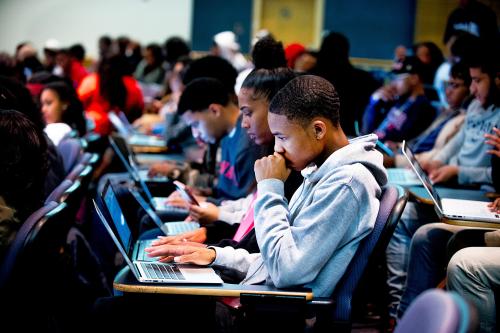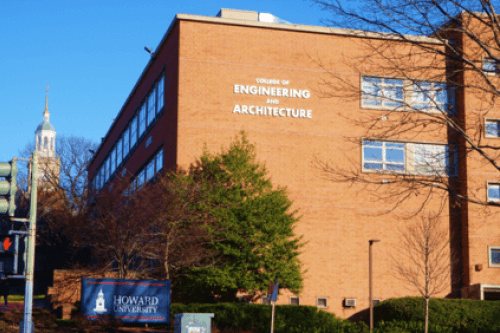Dr. Amy Quarkume is at the forefront of pioneering research that uses artificial intelligence to address critical issues related to climate resilience and speech development. Her work focuses on two transformative areas: creating climate solutions for historically Black colleges and universities; and developing AI-driven tools for children with speech delays. Both initiatives aim to empower marginalized communities and ensure inclusivity in technological solutions.
AI for Climate Resilience at HBCUs
Quarkume’s research in climate resilience focuses on helping HBCUs become leaders in addressing environmental challenges. Many HBCUs are located in communities that are highly vulnerable to climate change, facing issues like extreme weather, poor air quality, and inadequate infrastructure. Despite their critical role in education, these institutions often lack the resources to implement sustainable climate solutions.
Quarkume is working with Brookhaven National Laboratory to develop AI models that can predict and address these challenges, helping HBCUs manage energy resources, reduce carbon footprints, and create sustainable practices. “We don’t have the infrastructure that other institutions do, but if we did, we could address the challenges our communities face directly,” she explained. “We could build solutions for ourselves rather than just learning to work for others.”
“We need to create spaces where research, innovation, and entrepreneurship can thrive. If we can build these spaces, we can better address the economic, health, and environmental challenges facing our communities.”
Her ultimate goal is to transform HBCUs into hubs of climate innovation. By equipping these institutions with the necessary AI tools, Quarkume hopes to foster a future where HBCUs not only survive climate change but lead in the development of sustainable technologies. “We need to create spaces where research, innovation, and entrepreneurship can thrive. If we can build these spaces, we can better address the economic, health, and environmental challenges facing our communities,” she added.
AI for Speech Delay: Worlds of Hello
Quarkume’s second area of research focuses on children with speech delays, particularly those from underserved communities. Her journey into this field began after recognizing a gap in the resources available to support children with speech delays. Many children, especially between the ages of 2 and 5, struggle with speech development and don’t have access to effective intervention tools. Existing speech recognition technologies often overlook diverse voices, which means children from marginalized communities may not get the support they need.
To address this, Quarkume created Worlds of Hello, an AI-powered tool designed to support children with speech delays. This tool is unique because it allows children and their families to use their own voices to help with language development. “When the software is built, anyone can use their own voice to help support their own child,” she said. This approach ensures that speech therapy is personalized and inclusive of different accents, dialects, and linguistic backgrounds.
Her motivation for creating Worlds of Hello stemmed from a desire to make sure all children, regardless of their background, had access to speech development tools. She explains, “I realized that existing tools weren’t inclusive of the diversity found in our communities. Children with different accents and dialects were being overlooked, and I knew we had to change that.” The tool aims to provide a tailored experience that reflects the linguistic diversity of children and offers a more equitable solution to speech therapy.
Overcoming Challenges in Innovation
Despite the challenges Quarkume faces in her research, including limited resources and infrastructure in Black communities and HBCUs, she remains committed to her work. As a Black woman in the tech field, she also reflects on the additional barriers she encounters. “As a Black woman, being able to make mistakes with innovation is hard. The make-mistake bandwidth for everyone else is a bit longer for Black women,” she said.
Nevertheless, Quarkume is motivated by the belief that AI can be a transformative tool in solving pressing social issues. “AI has the power to change the world, but only if we ensure it reflects the needs and experiences of all people,” she said. Her work is driven by the belief that technology should not only solve problems but also foster inclusivity and equity.
Impact and Vision for the Future
Through her research in both climate resilience and speech development, Quarkume hopes to inspire more inclusive approaches to AI and innovation. By empowering HBCUs to lead in climate solutions and creating accessible AI tools like Worlds of Hello, she envisions a future where technology serves all people, particularly those in underserved communities.
Through her work, Quarkume is building a future where AI is used not only to solve problems but to create more equitable and inclusive systems, giving everyone the tools they need to succeed. “We need more voices in these spaces,” she said, “so that AI can change the world in a way that truly benefits everyone.”





